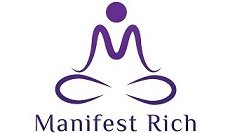Many people wonder if affirmations have the same impact when used in a language they are not familiar with. It’s a valid question that deserves exploration. In this article, we will delve into the effectiveness of affirmations in different languages, bringing together various perspectives to shed light on this topic.
- Affirmations can be effective in any language, as long as they resonate with the individual and evoke positive emotions.
- Consciousness has no language, and the real energy work of affirmations takes place in the dimension of inspiration.
- The language of the subconscious is imagery, which means it can understand affirmations in a foreign language without difficulty.
- Custom-fit affirmations that feel true and make you feel good should be the focus, regardless of the language used.
- Personal anecdotes highlight the positive impact affirmations can have, reinforcing the notion that their effectiveness transcends language barriers.
So, whether you’re using affirmations in your native tongue or experimenting with foreign languages, the key is to find the words that resonate deeply within you. Don’t let language become a barrier to your personal growth and self-improvement. Harness the power of affirmations, regardless of the language, and unlock your true potential.
The Power of Affirmations: Language Irrelevant to Energy Work
Some experts believe that the language in which affirmations are expressed has no impact on their effectiveness. They argue that consciousness has no language, and the real energy work takes place in the dimension of inspiration. The use of specific languages or words is irrelevant to the energy work being carried out.
According to one source, the language of the subconscious is imagery. This suggests that there shouldn’t be any problem with the subconscious understanding affirmations in a foreign language. The key is to use the language and words that resonate most powerfully with the individual. It’s about finding affirmations that feel true and make you feel good, rather than resisting or disbelieving them. Custom-fit affirmations should be used to work within your personal language and preferences.
It’s important to remember that the effectiveness of affirmations lies in their ability to evoke positive emotions and create a shift in mindset. The power of affirmations transcends language barriers. Whether you choose to use affirmations in your native tongue or in a foreign language, what truly matters is the resonance and impact they have on you. So, if affirmations in a different language resonate more strongly with you, don’t hesitate to embrace them.

“Affirmations hold immense power regardless of the language used. The mind is a powerful tool that can manifest our desires when we tap into its potential. Expressing affirmations in different languages can broaden our perspective and bring a sense of novelty and excitement to our practice.”
In summary, the language in which affirmations are expressed does not determine their effectiveness. The true power lies in the resonance and emotional response they elicit from the individual. Whether you choose to use affirmations in your native language or explore the benefits of affirmations in foreign languages, the key is to find the words and phrases that deeply resonate with you. Trust in the process and allow the power of affirmations to guide you towards personal growth and self-improvement.
The Subconscious Language: Imagery and Understanding Affirmations
It is suggested that the subconscious understands affirmations through imagery, making language barriers less significant. When we think of affirmations, we often associate them with words and phrases that we repeat or write down. However, the language of the subconscious is not limited to the spoken or written word. Instead, it communicates through images, symbols, and emotions.
Just like dreams, our subconscious mind speaks to us in visuals that can be deeply meaningful. When we visualize affirmations, we tap into the subconscious language of imagery, which bypasses the need for specific words or phrases. This means that affirmations can be effective in any language, as long as they are accompanied by vivid mental pictures that evoke strong emotions and resonate with our core beliefs.
“The subconscious mind speaks the language of emotions and imagery, rather than words. It understands the power of mental pictures that create a deep sense of truth and alignment within.”
Using affirmations in foreign languages can actually enhance their effectiveness by introducing new and inspiring mental images. By exploring different languages, we open ourselves up to new perspectives and possibilities. For example, if we’re learning a language that is known for its passionate expressions, using affirmations in that language can ignite a stronger emotional response within us, boosting our self-confidence and motivation.

| Key Points | Details |
|---|---|
| The subconscious understands affirmations through imagery | Language barriers become less significant when affirmations are visualized |
| Affirmations can be effective in any language | As long as they evoke strong emotions and resonate with our core beliefs |
| Using affirmations in multiple languages can enhance their effectiveness | Introducing new and inspiring mental images |
To conclude, the power of affirmations transcends language. By tapping into the subconscious language of imagery, we unlock the ability to communicate with our subconscious mind in a more profound and impactful way. Whether we choose to use affirmations in our native language or explore foreign languages, what truly matters is the authenticity and resonance we feel when using them. Language should never be a barrier to our personal growth and self-improvement journey.
Personalization and Resonance: Using Custom-Fit Affirmations
To maximize the impact of affirmations, it is crucial to personalize them according to individual preferences and beliefs. The language used in affirmations should feel authentic and resonate powerfully with the individual. Whether it is in one’s native language or a foreign language, the key is to choose words that evoke positive emotions and a sense of truth. By custom-fitting affirmations to our personal language, we can tap into the full potential of their effectiveness.
In my own experience, I have found that using affirmations in multiple languages has allowed me to access different aspects of my subconscious mind. It is like tapping into a vast reservoir of possibilities. For example, when I use affirmations in English, I connect with my logical and analytical side. However, when I use affirmations in my mother tongue, I tap into a deeper emotional wellspring.
One technique I have found helpful is to create a list of affirmations in multiple languages that resonate with me. I then rotate through these affirmations, using the ones that feel most impactful at any given time. By using affirmations in different languages, I am able to tap into different layers of my being, expanding my self-awareness and personal growth.
Table: Examples of Affirmations in Different Languages
| Language | Affirmation |
|---|---|
| English | I am confident and capable. |
| Spanish | Soy valiente y capaz. |
| French | Je suis confiant(e) et compétent(e). |
| German | Ich bin selbstbewusst und fähig. |
By using affirmations in multiple languages, we open ourselves up to a broader range of possibilities and perspectives. This can help to break down any limiting beliefs or patterns that may be holding us back. Ultimately, the effectiveness of affirmations is not tied to the specific language used, but rather to the personal resonance and connection that we feel when using them.
So go ahead, explore the power of affirmations in different languages. Customize them to your unique preferences and beliefs. Embrace the richness and diversity of language as you embark on a journey of self-discovery and transformation. You may be surprised at the profound impact it can have on your personal growth and well-being.

I have personally experienced the transformative power of affirmations, regardless of the language in which they were expressed. Affirmations have been a consistent part of my daily routine for several years, and I attribute much of my personal growth and development to their practice.
When I first began using affirmations, I started with ones written in my native language. I found them to be empowering and uplifting, helping me to shift my mindset and cultivate a more positive outlook. However, as I delved deeper into my spiritual journey, I became curious about the effectiveness of affirmations in different languages.
I decided to experiment with affirmations in foreign languages, and to my surprise, I discovered that they had the same impact on my mindset and well-being as those in my native language. It wasn’t the specific words that mattered, but rather the intention and energy behind them. Whether I was affirming in English, Spanish, or even Japanese, I found that the affirmations resonated with me on a deeper level, evoking the same feelings of empowerment and inspiration.
This personal experience has reinforced the notion that the effectiveness of affirmations is not dependent on the language used. The language barrier fades away when we tap into the universal language of the subconscious and connect with our inner selves. It is the intention, belief, and resonance with the affirmations that truly matter.

As I continue to incorporate affirmations into my daily practice, I encourage others to explore the limitless potential of affirmations in different languages. Whether you choose to affirm in your native tongue or venture into new linguistic territories, remember that what truly matters is the energy and intention behind the words. Allow yourself to experiment, personalize, and discover the affirmations that resonate most powerfully with you. Embrace the power of affirmations, regardless of the language in which they are expressed, and witness the positive impact they can have on your life.
Conclusion
In conclusion, the language used in affirmations is not the determining factor of their effectiveness. It is the resonance and positive emotions they evoke that make them impactful, regardless of the language spoken. This sentiment is supported by multiple sources, which argue that consciousness has no language and that the real energy work takes place in the dimension of inspiration.
One school of thought suggests that the language of the subconscious is imagery, making it perfectly capable of understanding affirmations in a foreign language. The key is to use affirmations that resonate powerfully with the individual, regardless of the language used. Personalization is important in this regard, as custom-fit affirmations in one’s preferred language have the potential to evoke a stronger sense of truth and positivity.
Throughout our exploration, we have discovered that specific languages or words are irrelevant to the energy work carried out by affirmations. The ultimate goal is to use affirmations that feel true and make us feel good, as opposed to resisting or disbelieving them. By focusing on the resonance and positive emotions they evoke, we can harness the full potential of affirmations, regardless of the language used.
To illustrate the power of affirmations, the author has shared a personal anecdote about the positive impact they have had on their own life. This serves as a real-life example of how affirmations can be effective in promoting personal growth and self-improvement, regardless of the language in which they are expressed.
In summary, while some may question the effectiveness of affirmations in another language, the consensus is clear. The language used is not the determining factor of their effectiveness. It is the resonance, positive emotions, and personalization that make affirmations powerful tools for personal growth and self-improvement, regardless of the language spoken. So, don’t let language barriers deter you from harnessing the full potential of affirmations in your journey towards a more positive and fulfilling life.
FAQ
Do affirmations work in another language?
The effectiveness of affirmations is not dependent on the language used. Consciousness has no language, and the real energy work takes place in the dimension of inspiration. The specific language or words used are irrelevant to the energy work being carried out.
Will my subconscious understand affirmations in a foreign language?
The language of the subconscious is imagery, so there shouldn’t be any problem with the subconscious understanding affirmations in a foreign language. The key is to use affirmations that resonate most powerfully with you, regardless of the language used.
Should I use affirmations in multiple languages?
It is important to use affirmations in your personal language, the one that resonates most powerfully with you. Custom-fit affirmations should be used to work within your preferred language, whether it’s your native tongue or another language that holds significance for you.
How do I ensure the effectiveness of affirmations?
The focus should be on affirmations that feel true and make you feel good, rather than resisting or disbelieving them. Personalize your affirmations to match your individual experiences and desires. Use words and phrases that evoke positive emotions and empower you.
Can you share a personal experience with the impact of affirmations?
Affirmations have had a positive impact on my life. Regardless of the language used, affirmations that felt true and resonated with me helped boost my self-confidence and cultivate a more positive mindset. They have been a powerful tool for personal growth and self-improvement.


